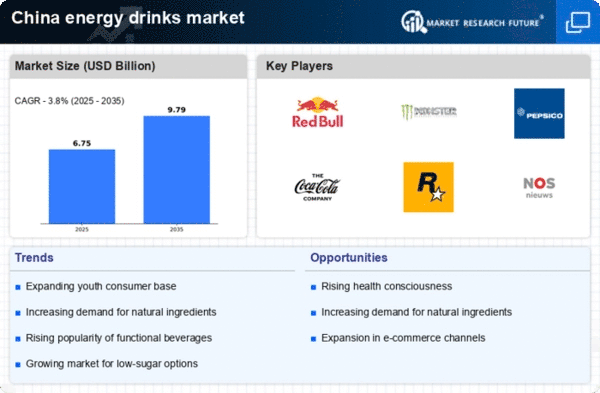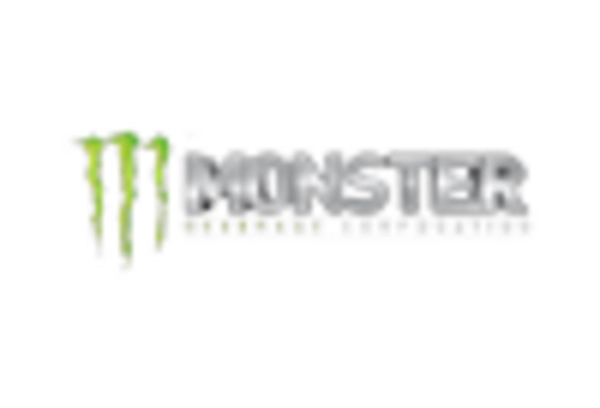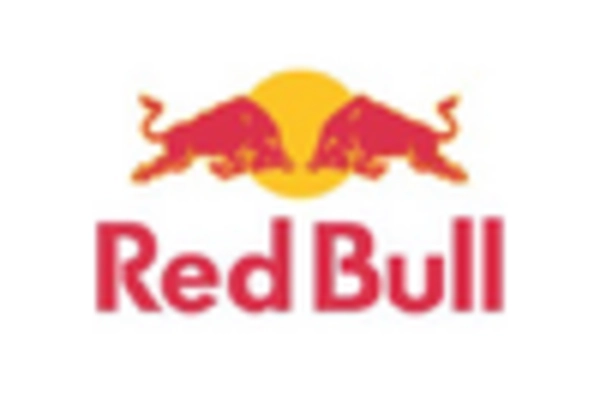Innovative Marketing Strategies
The energy drinks market in China is characterized by innovative marketing strategies that engage consumers effectively. Brands are increasingly utilizing digital platforms and experiential marketing to create memorable interactions with their target audience. For instance, interactive campaigns on social media platforms have proven successful in attracting younger consumers. The energy drinks market is also leveraging collaborations with popular events, such as music festivals and sports competitions, to enhance brand recognition. This approach not only boosts sales but also fosters brand loyalty among consumers. As competition intensifies, companies that adopt creative marketing tactics are likely to thrive.
Youth Culture and Lifestyle Trends
The energy drinks market in China is significantly influenced by the lifestyle choices of the younger demographic. With a large population of millennials and Gen Z consumers, the market sees a growing inclination towards energy drinks as a part of their daily routine. This demographic often associates energy drinks with social activities, sports, and gaming, leading to an increase in consumption. Reports indicate that around 40% of energy drink consumers in China are aged between 18 and 30. The energy drinks market is thus focusing on marketing strategies that resonate with youth culture, utilizing social media and influencer partnerships to enhance brand visibility.
Rising Demand for Functional Beverages
The energy drinks market in China experiences a notable surge in demand for functional beverages. Consumers increasingly seek products that offer more than just energy, such as enhanced cognitive function, improved physical performance, and added vitamins. This trend is reflected in the market's growth, with functional energy drinks accounting for approximately 30% of total sales in 2025. The energy drinks market is adapting to this shift by incorporating ingredients like ginseng, taurine, and B vitamins, which are perceived to provide additional health benefits. As health awareness rises, brands that emphasize functional attributes are likely to capture a larger share of the market.
Regulatory Changes and Health Guidelines
The energy drinks market in China is subject to evolving regulatory changes and health guidelines that impact product formulations and marketing practices. Recent government initiatives aim to promote healthier consumption patterns, leading to stricter regulations on caffeine content and labeling requirements. The energy drinks market must navigate these changes to ensure compliance while maintaining consumer appeal. Brands that proactively adapt to these regulations by reformulating products to meet health standards may gain a competitive edge. This regulatory landscape could potentially reshape the market, as consumers become more discerning about the ingredients and health implications of energy drinks.
Increased Urbanization and Fast-Paced Lifestyles
Urbanization in China continues to accelerate, contributing to the fast-paced lifestyles of its inhabitants. As more individuals move to urban areas, the demand for convenient and quick energy sources rises. The energy drinks market is witnessing a shift, with consumers seeking on-the-go options that fit their busy schedules. This trend is particularly evident in metropolitan areas, where energy drinks are often consumed during commutes or work breaks. The market is projected to grow by approximately 15% annually, driven by this urban lifestyle. Brands are responding by offering portable packaging and ready-to-drink formats that cater to the needs of urban consumers.
















